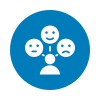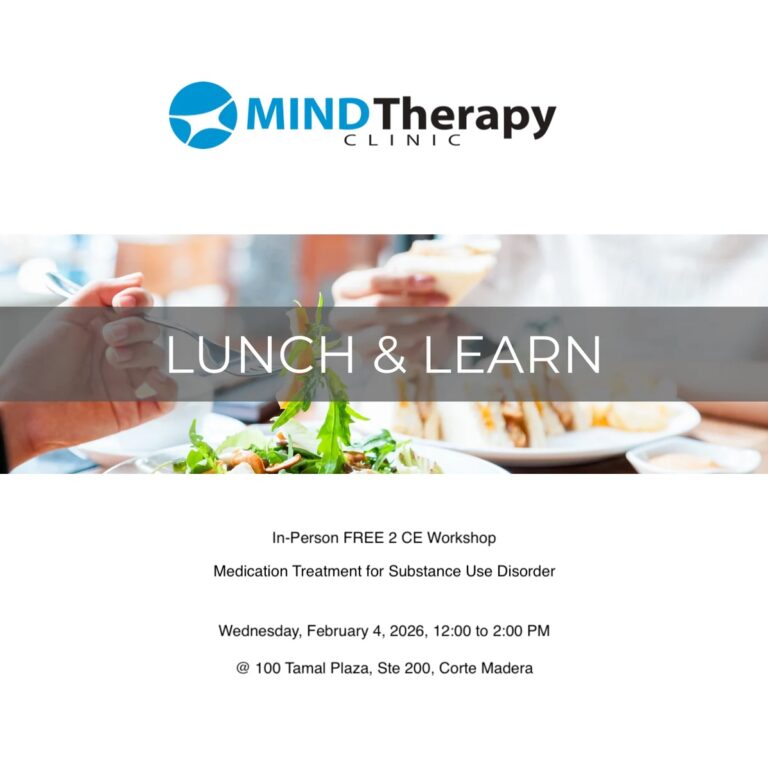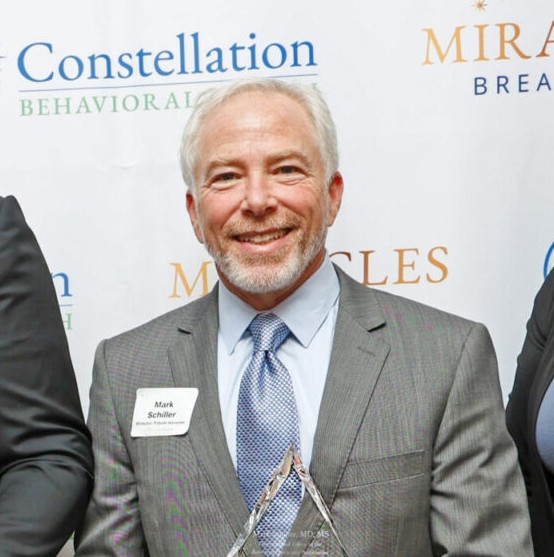Borderline and Personality Disorders
Personality disorders are workable, treatment helps.
Personality disorders involve long-standing patterns of feeling, thinking, and relating that can lead to intense emotions, unstable relationships, and repeated crises. Common presentations include borderline (BPD), avoidant, obsessive-compulsive (OCPD), dependent, narcissistic, paranoid, and schizotypal patterns. Symptoms often co-occur with depression, anxiety, trauma-related symptoms, OCD-spectrum issues, eating-disorder features, or substance use. Durable progress comes from an integrated plan that addresses emotion regulation, relationships, and co-occurring conditions together.
The right diagnosis is crucial in obtaining the appropriate care and treatment for borderline personality disorder (BPD). We understand the challenges associated with this commonly misdiagnosed serious mental illness that can lead to self-harm, with approximately 80% of individuals with BPD attempting suicide as a way to regulate emotions and express pain.
Our team is skilled in accurately diagnosing BPD and identifying effective medications that can make a significant difference in managing symptoms. Recognizing that BPD often co-occurs with other serious mental illnesses, we take a comprehensive approach, considering the entirety of the individual’s situation. Our evidence-based treatment programs have been proven to work in the long term, providing lasting relief and support for those with BPD and its associated challenges.
Not Sure if You Need Help?
Intense emotions, urges, or emptiness that feel hard to manage
Cycles of conflict, breakup/reconciliation, or fear of abandonment
Self-harm urges, impulsive behaviors, or repeated crises
Chronic perfectionism/rigidity that strains work or relationships
Longstanding patterns that persist despite “trying harder”
Symptoms of BPD can be challenging, but with the right treatment plan you can reduce your symptoms and live a happy and stable life. The first step is getting an accurate diagnosis.
*This quiz should not be used to replace the recommendations or diagnoses provided by a medical or mental health professional. We encourage you to share your results with a mental healthcare professional who can help you determine the next steps that are right for you
What are co-occurring disorders?
Co-occurring disorders (also called dual diagnosis) means a substance use disorder happens at the same time as one or more mental health conditions. Common combinations include depression, anxiety, PTSD/trauma, bipolar spectrum, ADHD, OCD, and personality-related difficulties. Treating only substance use – or only mental health – often leads to short-lived results. Durable recovery requires addressing both together.
–
Why integrated treatment works
- Substance use can mask or worsen mood, anxiety, and trauma symptoms.
- Mental health symptoms can trigger cravings and relapse risk.
- Coordinated care reduces handoffs, conflicting plans, and gaps that derail progress.
- Patients get one team, one plan, and consistent skills across settings.
–
How we integrate care at Mind Therapy Clinic
1) Comprehensive assessment
Psychiatry-led evaluation of substance use patterns, withdrawal risk, and mental health history; medical review and labs as needed.
2) One plan, one team
Your psychiatrist, individual therapist, family therapist, group facilitators, and case manager meet weekly to align goals and adjust care.
3) Evidence-based therapies
CBT, DBT, ACT, trauma-informed care, motivational interviewing/MI, relapse-prevention, and skills groups that apply to both conditions.
4) Medications when appropriate
Medication management for mood/anxiety/ADHD and MAT (e.g., buprenorphine, naltrexone, acamprosate) when clinically indicated.
5) Integrated family support
Education, boundaries, and coaching so home supports recovery rather than stress.
6) Step-up/step-down continuity
Seamless movement across Outpatient ↔ IOP ↔ PHP, with the same core team; option to pair IOP/PHP with 24/7 supportive living.
7) Measurement-based care
Regular symptom and functioning measures for both substance use and mental health—shared with you to track progress together.
Signs of Borderline Personality Disorder:
If you find you have any of these signs in your life, don’t hesitate to reach out to our clinic for a consultation.
If you’re in crisis, call 988 or 911, or go to the nearest emergency department.
- Distorted self-image and unstable sense of self
- Impulsive and risky behaviors (e.g., spending, unsafe sex, substance misuse)
- Self-harming behaviors like cutting
- Recurring thoughts of suicide
- Intense and fluctuating moods
- Persistent feelings of emptiness
- Difficulty controlling anger
- Dissociative experiences and feelings of unreality
Personalized Treatment

Dialectical Behavioral Therapy - DBT
DBT has shown to be effective with those suffering from Borderline Personality Disorder. Our DBT specialists are available to provide psychotherapy and DBT-oriented group therapies.

Medication
Medications are helpful in alleviating symptoms of depression and anxiety that often accompanies these disorders. The right combination of medication and psychotherapy is the most effective treatment for BPD.

Cognitive Behavioral Therapy - CBT
Cognitive behavioral therapy is particularly helpful in the treatment of BPD when combined with a focus on understanding thought distortions. CBT therapists are available as individual therapist as well as group facilitators at Mind Therapy Clinic. If this is an appealing mode of therapy, ask us.

Psychotherapy
By working with one of our skilled therapists, individuals diagnosed with BPD can develop valuable skills for emotional regulation and distress tolerance. Psychotherapy also provides a safe space for exploring and understanding the underlying causes of BPD symptoms, facilitating healing and personal growth.
Intensive Outpatient Program (IOP)
3 Day IOP
Includes:
The 3-day program includes 2 group therapy sessions per day.
One individual psychotherapy session per week (master’s level provider or higher)
Psychiatric Evaluation & Medication Management
Family Therapy (once a week)
Case management services of up to two (2) hours per month.
Adjunct Services*
*These are additional clinically indicated services that are customizable and prescribed by the treating psychiatrist.
4 Day IOP
Includes:
The 4-day program includes 2 group therapy sessions per day.
One individual psychotherapy session per week (master’s level provider or higher)
Psychiatric Evaluation & Medication Management
Family Therapy (once a week)
Case management services of up to two (2) hours per month.
Adjunct Services*
5 Day IOP
Includes:
The 5-day program includes 2 group therapy sessions per day.
One individual psychotherapy session per week (master’s level provider or higher)
Psychiatric Evaluation & Medication Management
Family Therapy (once a week)
Case management services of up to two (2) hours per month.
Adjunct Services*
Partial Hospitalization Program (PHP)
Includes:
About 3 to 4 therapy groups per day
Two individual psychotherapy sessions per week
Psychiatric evaluation & medication management
Family therapy once a week
Case management services: 30 mins to 1 hour per week
Specialized services can be arranged at an addition cost, by mutual agreement based on need
Therapy Groups
Learn about coping strategies to reduce anxiety symptoms and gain a better understanding of the thoughts, feelings, and behaviors that perpetuate anxiety—all within a caring and supportive environment.
Anxiety Therapy
Upcoming eventBuilding Strong Relationships Group
Upcoming eventCognitive Behavioral Therapy
Upcoming eventDepression and Loss Group
Upcoming eventDistress Tolerance Group
Upcoming eventEmotion Regulation Skills
Upcoming eventEmotions and Compulsions
Upcoming eventFamily and Relationship Issues
Upcoming eventGoals Group
Upcoming eventHealthy Living Group
Upcoming eventIncreasing Connection
Upcoming eventInterpersonal Effectiveness Skills
Upcoming eventLife Satisfaction Group
Upcoming eventMindful Process Group
Upcoming eventMindfulness Skills Group
Upcoming eventPost-Traumatic Growth
Upcoming eventRelapse Prevention Skills Group
Upcoming eventSelf Compassion Group
Upcoming eventSelf-Acceptance Group
Upcoming eventShining a Light on Recovery
Upcoming eventStress and Addiction Group
Upcoming eventTaking Charge Group
Upcoming eventTaming Anxiety Group for Teens
Upcoming eventThe Next Right Thing
Upcoming eventWomen’s Psychotherapy Group
Upcoming event
We’re dedicated to providing valuable information and support for anyone who is struggling with mental health issues. Our extensive options for group therapy are led by highly experienced medical professionals. Explore our informative articles to help you better understand and manage your anxiety. Our goal is to provide a safe and supportive community where you can learn, connect, and grow.






